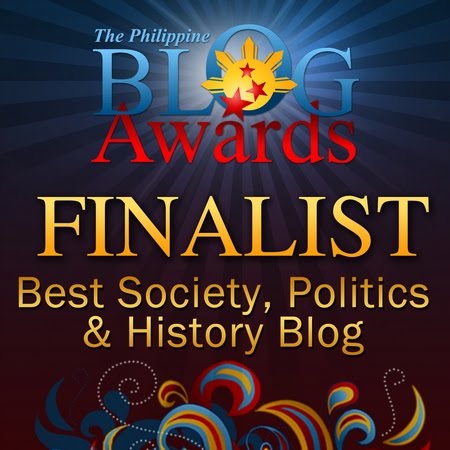“To accuse the Spanish, over and over again, of having brought us all sorts of things, mostly evil, among which we can usually remember nothing very valuable, ‘except, perhaps,’ religion and national unity, is equivalent to saying of a not very model mother, that she has given her child nothing except life, for in the profoundest possible sense, Spain did give birth to us — as a nation, as an historical people. This geographical unit of numberless islands called the Philippines –this mystical unit of numberless tongues, bloods and cultures called a Filipino– was begotten of Spain, is a Spanish creation. The content of our national destiny is ours to create, but the basic form, the temper, the physiognomy, Spain has created for us.
Towards our Spanish past, especially, it is time we became more friendly, bitterness but inhibits us; those years cry for a fresher appraisal. –Nick Joaquín (La Naval de Manila, October 1943)–
So many writers and scholars have claimed that our race has no identity of its own. They say that we are still seeking an elusive national identity. Most of them somehow have this “warped” view of the subject, stating that more than three hundred years of Spanish colonization hindered the development or natural evolution of our identity. Some say that the Filipino identity started to exist only when the Philippines revolted against “Spanish tyranny and oppression”. And some argue that we still have to develop it.
“A definite national identity has continuously eluded the Filipino peoples,” declared Gabriela Network. “Colonizers and imperial powers have thwarted fledgling attempts at nationhood, redefining the archipelago for their own benefit.” The late statesman, Carlos P. Rómulo, wrote intrepidly that “our history is a record of the search for the Filipino identity,” implying thus that there is an absolute absence of it. “The examination is urgent because we are witnessing a resurgence of the spirit, expressing itself in a boldness with which we like to conceive our politics, our social organization, our intellectual and artistic tradition, our system of education, and, more significantly, the assertiveness with which we like to regard ourselves in relation to the larger context of Asia,” he continued.
Retired colonel of the Armed Forces of the Philippines (and author of the History of the Armed Forces of the Filipino People) Dr. César P. Pobre even tried to explain why there is a lack of such an identity: the country’s archipelagic nature, a deficiency of unity and unifying symbols other than the national language and flag, colonial policies, the protracted terrorism of local communist and separatist groups, and demographic diversity.
But to say that we do not have our own identity is tantamount to declaring that we have no country, that we are not a unified network of nations. Or that perhaps we are a nation of fools. From Aparri to Joló, aren’t we all proud and united in joy whenever boxing hero Manny Pacquiáo waves the three stars and the eight-rayed sun in victory over a devastated (and pre-match loudmouthed) opponent? Our nationalistic pride is always stirred up whenever a kababayan receives honors abroad. And we are angered in unison whenever we receive news that one of us is harmed overseas. Our nationalistic fervor is alive. We acknowledge each other’s united presence even in other countries. Doesn’t this prove that we already have an identity? We already have a concept of nationhood, but the problem is that this concept is somewhat bigoted and not wanting in atavistic blindness. In this age of information and ecumenism, we are no longer finicky toward racism. It’s (supposedly) a thing of the past. Why then are we still behind in identifying our very own identity as a people?
We do not need to seek nor build our own identity. It’s already here, ready to strike us in the face. What needs to be done is to simply identify it. It is already within us. We just need to tap it. And make it known among ourselves.
But what is national identity? It is generally accepted that this concept refers to a group of people’s distinguishing characteristics or specific features, making each of its member feel a warm sentiment of belongingness to that group. Sentient commonality is present regardless of racial origin (i.e., regional attributes) or creed or regional peculiarities. Its importance thus cannot be taken for granted.
“A nation strongly built is a nation secure,” remarked Dr. Pobre. “To be strong it must have unity. And to have unity it must have, among others, a national identity. Hence, the quest for national identity is an imperative to building a strong national community.” It is so true. Therefore, if we already have a national identity, why are we still a weak and blighted nation, blind with rage toward our past, particularly at our glorious Spanish past? Because we haven’t been able to identify this controversial identity. Or we refuse to do so.
The words “glorious Spanish past” has to be mentioned and even emphasized because it is exactly from that epoch that our identity was first formed and forged. Before the Spaniards came, there was no Philippines and no Filipino people to speak of. The Filipino identity is the product of the Filipino State that began to exist in Spanish on 24 June 1571. The Filipino State was founded together with Manila on that same date, with the government having Spanish as its official language. It’s as simple as that; no more need to use effusive language and pretentious arguments.
With the birth of a nation follows the birth of its people’s own unique identity. Before 24 June 1571, each tribe (called indios) living all over what is now known as the Philippine archipelago had their own petty kingdoms, languages (including a system of writing), culture, traditions and customs, beliefs, and identity. Technically speaking, they were divided as various independent states or countries. That was all changed when Spain occupied the islands and united all of them into one compact and homogeneous body (that is why those who refused this generous Spanish act should not consider themselves as Filipinos in spirit).
In nation-building, the people has to be united first and foremost. And in order to be united, its peoples should acknowledge a shared identity among themselves. Our forefathers, the first ones who synthesized the concept of nationhood back in 1571, avowed to this shared identity through concepts and newfound knowledge brought about by Spanish culture. “In our orthodox history education, it’s regrettable that the core appears to be lessons in history with a ‘nationalist’ attitude,” wrote fellow nouveau “propagandist” Arnaldo Arnáiz. “That in order to glorify the homeland, we must acknowledge that colonialism was entirely immoral and therefore never produced any meaningful transformation, that we have an obligation to focus on ways to remove its influence, and that we must to go back to our pristine origins — that the more aboriginal our mindset is, the more Filipino we become. Along this line of thinking, there are those who argue that to be a Filipino, the correct attitude must be above all that of an Asian. This essentially puristic approach is an attempt to undo the path of our evolution as a society. The trouble with this is that the Filipino’s base can only be traced in its mestizo genesis. Even the formation of its name, ‘Filipino’ and ‘Filipinas’, is the outcome of that merger.”
This is not to say that the Spaniards were pure saints and that they didn’t do us any wrong at all. “Colonialism has its faults,” says Arnáiz. But it should be noted that the Spanish takeover was mainly for evangelization because unlike other colonies, the Philippine archipelago had no spices nor any major gold deposits (save perhaps for a few places such as the one in Paracale, Camarines Norte). This country, in fact, developed into a progressive nation through the latest technologies and economic breakthroughs coming from the West. And this economic progression later on paved the way for former US President William McKinley’s infamous “Benevolent Assimilation” proclamation in 1898, thus shaming and mocking the precepts of his own country’s Monroe Doctrine.
Such a fact prompted another “modern propagandista” and foremost Filipinist/Hispanist of our time, the great scholar and 1975 Premio Zóbel winner Guillermo Gómez Rivera, to observe that “the Filipino State became so rich and so vibrant that from a mere missionary outpost it went on to become a colony, in the Spanish sense of the word. It went on to become an overseas Spanish province under a Ministerio de Ultramar until it graduated into the 1898 República Filipina which the invading American forces of the 1900s literally destroyed with an unjust war by murdering one-sixth of its total population.” Señor Gómez further adds that “the Americans claimed the Philippine Islands as a ‘territory of the United States of America’ but never gave any American citizenship status to the Filipinos as Spain did from the start of her rule. Thus, while it was the Spaniards who started for all Filipinos the organization of what was later to become their own Filipino State, the basis of their national patrimony and rights, the American WASPs* took away from the Filipinos, their own STATE.”
If only today’s generation are still Spanish-speaking like our ancestors, the abovementioned facts would have been very easy to grasp. And more facts would have been uncovered, especially those that were twisted by today’s educators who are under the influence of WASP neocolonial policies. Another colleague of ours, José Miguel García, correctly ascertained that “many of our documents, records, and literature were written in Spanish. These are records of our past. Without records of our past, we do not have access to our common origin as a nation. Without our common origin as a nation, we do not have a common identity. Without a common identity, we do not have anything to do with each other as a nation…”
Once our true Filipino Identity, an identity based on our glorious Spanish heritage, has been correctly identified and made known to all, nationalistic pride and patriotic love will have more sense and meaning. That is why it is imperative to bring back the Spanish language in this country. It is the key to identify and recover our national identity.
“Only when we become aware that we have an inheritance and how and where it was taken can we recover our national identity,” wrote García. “Only then can we recover our beautiful stock. Only then can we recover our national genetic code and regenerate once more our beautiful stock from which development of not only the once glorious Manila will again spring, but our once glorious Filipinas.”
Ladies and gents, the ball is now in our hands.
*White Anglo-Saxon Protestant








Yo, Pepe. I’ll spread this to my Tagalista enemigos.
LikeLike
Very good! May I have a link as well so that I could join the fun?
LikeLike
http://www.facebook.com/topic.php?uid=106259116938&topic=13714#/topic.php?uid=106259116938&topic=14863
http://www.facebook.com/topic.php?uid=106259116938&topic=13714#/topic.php?uid=106259116938&topic=13714
Looks like I’ve found a Hispanophobe. The name’s Erico Dayrit, and he’s all yours for the taking.
LikeLike
Thanks, Gundam! The @$$h0l3 is mine, LOL!
LikeLike
Muy bella la pintura de Fernando Amorsolo que reproduces. ¿Por qué no un reportaje sobre este soberbio pintor filipino, de la escuela sorollista, que estudió en Italia y España?
Prof. Manuel García Castellón
University of New Orleans
EE. UU.
LikeLike
¡Hola Sr. García!
No estoy seguro si hay un reportaje o libro sobre Fernando Amorsolo. Lo que sé es el difunto Artista Nacional para la Literatura, Nick Joaquín, escribió un ensayo sobre él y sus obras.
¿Es usted filipino?
¡Gracias por su tiempo!
José Mario “Pepe” Alas
LikeLike
Pingback: Debunking the historical claim « FILIPINO eSCRIBBLES
Pingback: Easter Sunday 2013 is the 492nd anniversary of the first Mass in the Philippines! | FILIPINO eSCRIBBLES
Pingback: Updating “The History of The Filipino People” | g21site